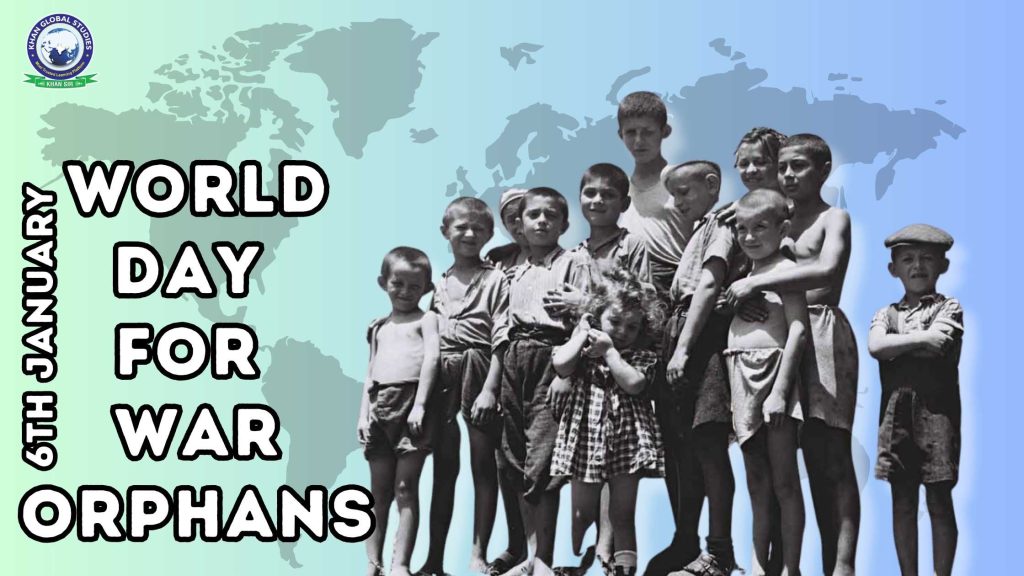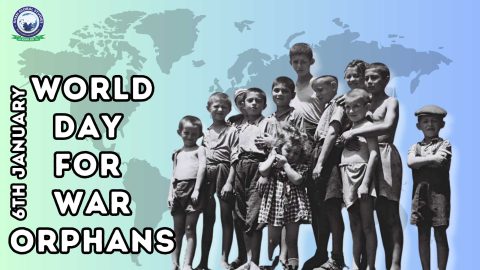Every year, January 6 is observed as World Day of War Orphans. This day is dedicated to the millions of children who have lost their parents and become orphans due to wars. The primary aim of this observance is to raise awareness about the plight of these children and ensure they receive the support and assistance they need.
History of World Day of War Orphans
The World Day of War Orphans was established by a French organization called SOS Enfants en Detresses. According to the United Nations Children’s Fund (UNICEF), approximately 900,000 children in northeastern regions of conflict-affected areas struggle with issues such as lack of education, food, shelter, or physical harm. Internally Displaced Persons (IDPs) are individuals forced to leave their homes, jobs, and possessions. Ensuring they do not succumb to hunger or illness is crucial.
Significance
As per UNICEF, over 140 million orphans exist globally:
- 52 million in Africa
- 10 million in the Caribbean and Latin America
- 61 million in Asia
- 7.3 million in Central Asia and Eastern Europe
Most orphans live with surviving parents, grandparents, or other family members. In 95% of cases, orphans are older than five years. While wealthier nations have fewer orphans, regions affected by wars or severe diseases have significantly higher numbers.
Between 1990 and 2001, the number of orphans increased, but since 2001, there has been an annual decline of approximately 0.7%.
The Impact of War on Children
Wars disproportionately affect children. They lose not only their parents but also access to education, healthcare, and basic rights to a normal life.
The objectives of World Day of War Orphans include:
- Raising Awareness: Sensitizing society to the struggles of war orphans.
- Mobilizing Resources: Gathering support to provide education, healthcare, and rehabilitation for these children.
- Policy Advocacy: Encouraging governments and organizations to develop strong policies to protect the rights of war orphans.
Current Scenario
Even today, many children are orphaned in war-torn regions such as Syria, Afghanistan, Yemen, and others. These ongoing conflicts are stark reminders of the urgency of this cause.
How Can We Help?
- Donate: Contribute financially to organizations supporting war orphans.
- Volunteer: Offer your time to aid in the rehabilitation and education of these children.
Conclusion
The World Day of War Orphans serves as a poignant reminder to acknowledge these children and work toward reducing the impact of war on young lives. By ensuring better policies, resources, and collective efforts, we can create a safer world where no child has to face the horrors of war alone.
“Every small effort can bring a significant change in the lives of these children.”





